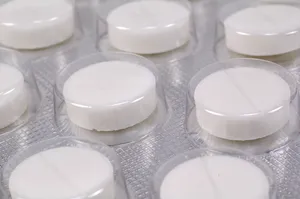
GERD Medications
Medications, both prescription and over-the-counter remedies, for treating GERD include the following:
1. Over-the-counter antacids
Medications to treat GERD range from over-the-counter antacids (or those that reduce acid production) can be purchased without a prescription. Common brands include Alka-Seltzer, Maalox, Pepto-Bismol, Tums, and Rolaids, and all typically contain magnesium, calcium, and aluminum hydroxide or bicarbonate ions to help neutralize the acid levels in your stomach.
2. Foaming agents
Help tame stomach acid by covering your stomach contents with foam to prevent reflux. Common over-the-counter remedies include Gaviscon and Zantac.
3. Prescription proton pump inhibitors
Prescription variety proton pump inhibitors relieve more serious symptoms of GERD and come under names such as omeprazole (Prilosec), lansoprazole (Prevacid), pantoprazole (Protonix), rabeprazole (Aciphex), and esomeprazole (Nexium).
4. Prokinetics
Prescription prokinetics work to strengthen the sphincter by improving muscle action in the digestive tract, which in turn controls how fast the stomach empties. Prokinetics come under names like bethanechol (Urecholine) and metoclopramide (Reglan), but keep in mind they have a lot of side effects, including nervousness, agitation and anxiety.
Lifestyle Changes for Treating GERD
Many of these GERD lifestyle adjustments are really just common sense. Realistically, the more healthy eating and activities you have in your life; the less GERD symptoms you will experience. The following lifestyle changes are always recommended in conjunction with other GERD treatments:
- Weight loss if needed
- Quit smoking
- Avoid alcohol
- Eat smaller, more frequent meals throughout the day
- Commit to walking after meals
- Wear loose-fitting clothes, especially around the abdomen area to ease painful bloating
- Never lie down following a meal, let it digest for at least 3 hours
- Sleep with your head raised 6 to 8 inches with foam pillows or even blocks of wood under the bedposts to boost the head of your bed (this position relieves acid reflux)
GERD Surgeries
Surgery to treat GERD is never recommended by doctors unless patients have prolonged, persistent GERD that won’t respond to medication or lifestyle changes alone.
Fundoplication surgery is the most common GERD surgery, and it’s been show to relieve GERD symptoms in approximately 8 out of 10 surgical patients. Fundoplication surgery aims to strengthen the valve between the esophagus and stomach by reducing or stopping acid from backing up into the esophagus and letting acid damage to the esophagus heal. This surgery is either done by cutting through the abdomen or the chest (for obese patients with short esophagus) or performed laparoscopically, rerouting and sewing the upper curve of the stomach around the esophagus so that the lower portion of the esophagus passes through a small tunnel of stomach muscle.



